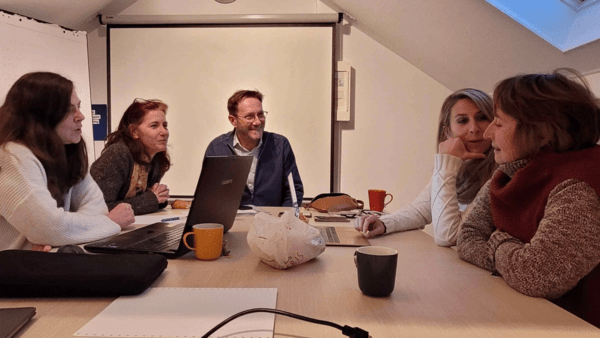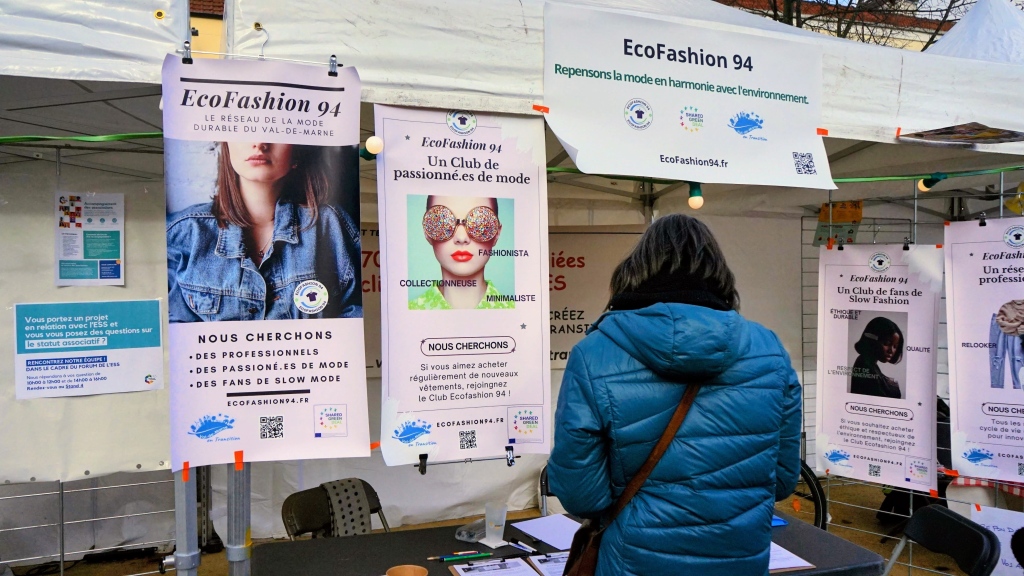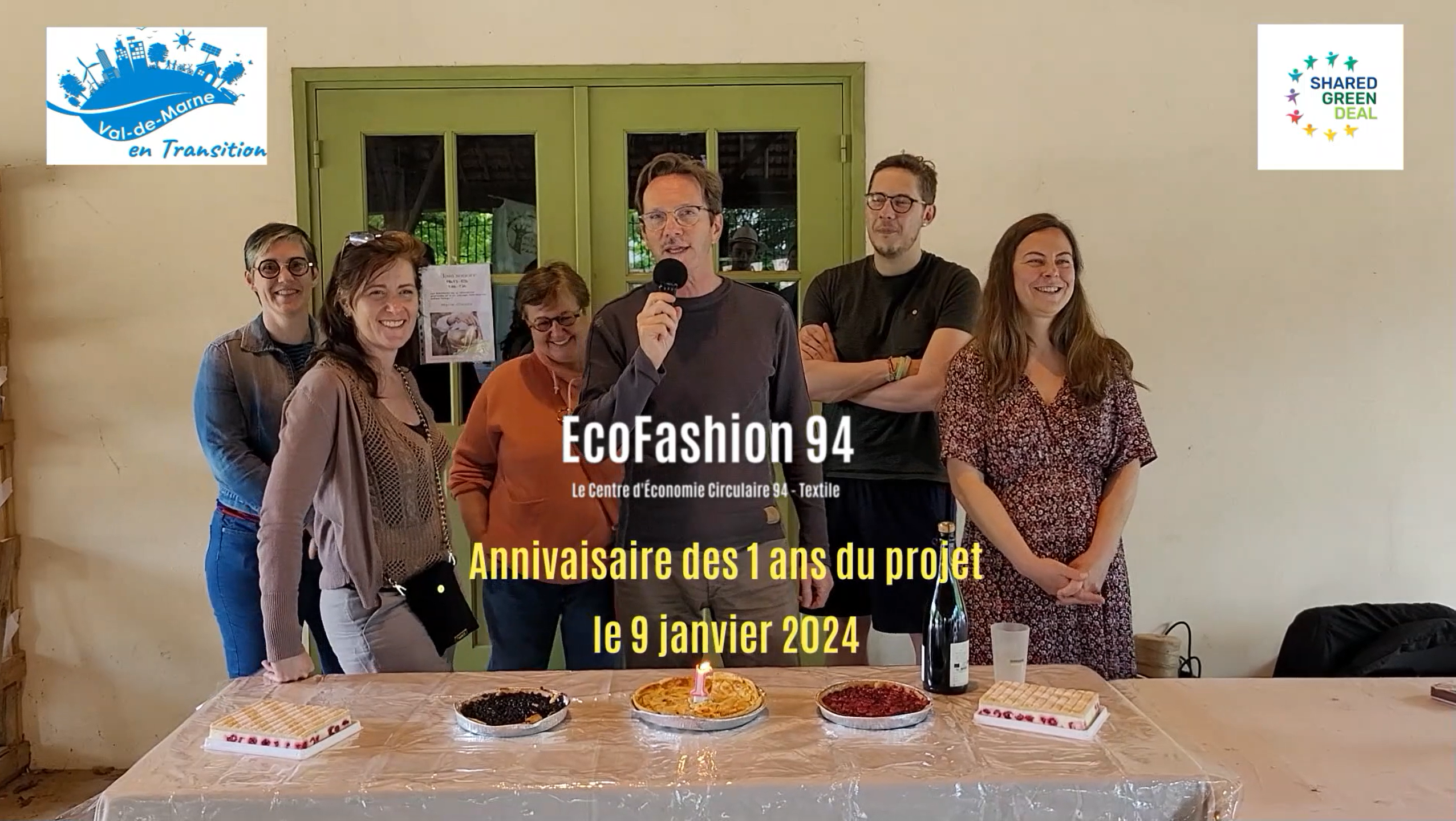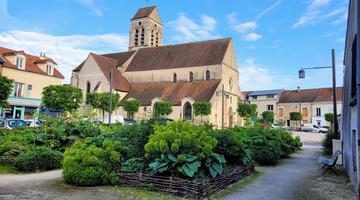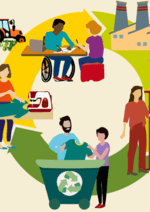EF94 - A Journey Towards Sustainable Fashion
Perhaps you know the feeling: a favourite shirt comes back from the wash with a gaping hole, marking the beginning of the end for what was once a cherished item. At first, it’s worn only at home. Then it lies in a drawer for six months, forgotten—until one day, it’s picked up during a spring clean and placed in a plastic bag. Give it away? No, who would want a damaged shirt? Recycle it? How, where, when? Eventually, it might end up in the rubbish bin, though even its path from there remains uncertain. Perhaps it’s incinerated, or maybe it finds its way to a landfill. Perhaps part of it can be shredded into fibres, downcycled into cleaning rags or paper.
One thing is certain: for too many people in Europe, the fate of an unlucky shirt—or other clothes and fashion items—is degradation and disposal.
But not so in Val-de-Marne, in southeastern Paris...
Here, a small yet ambitious community of professionals has taken the first steps towards changing the whole culture of “fast fashion”. The EcoFashion 94 initiative – named for the 94th département- has set out with a bold vision: to transform the textile industry by fostering a circular economy.
Unlike traditional approaches that merely greenwash existing practices, working within SHARED GREEN DEAL, EcoFashion 94 sought to address the root causes of fast fashion’s unsustainability. By bringing together professionals from various sectors—clothing resale, upcycling, repair, and ethical design—the community works to build a resilient and environmentally respectful fashion ecosystem.
“Our association Val-de-Marne en Transitions wants to transform the world… (but) despite the radical nature of our vision, we want transition, not revolution. The question is: how do we move from the current Fast Fashion business model to a more resilient one?”
- Jean-Paul Grange - Val-de Marne en Transition
Embedding a new sense of “use”
Today, the local folks in Val de Marne have an alternative to the classic buy, use and throw away culture of fast fashion. Jean-Paul and the group have benefitted from their stakeholder engagement to today providing an innovative rework shop for clothing repair: “Retoucherie EF94”. This service lets customers drop their old clothes off for repair and redesign to a very local volunteer collector, extending the lifespan of each garment and fostering a circular mindset among fashion consumers.
As Jean-Paul puts it, “we want to replace the reflex ‘it's damaged, it doesn't fit me anymore, so I’ll throw it away’ with ‘I’ll have it repaired or modified’”.
A notable success story from the EcoFashion 94 project involves two local designers named Amélie Moreau, who runs a brand called “Le Paul Sud” and “Pénélope Chapuis” whose brand is called “binette” (binette.io). Initially, Pénélope was hesitant about the project’s potential impact on her business. However, her involvement in the workshops and collaborative sessions led to a significant transformation in her approach to fashion design.
Pénélope joined the project with a focus on sustainable fashion but was unsure how to integrate repairability into her designs. During the co-construction meetings with Amélie, Pénélope, Christine and Jean-Paul, Pénélope worked closely with other designers and upcyclers. This collaboration sparked new ideas and approaches. One of the key outcomes was the development of repairable straps for her popular banana bags.
First steps towards circularity
The first part of the answer began with coming together. Over several workshops, the group mapped out the lifecycle of clothing in order to identify key issues and solutions. This collaborative approach continued with workshops using Design Thinking methods to enable local fashion entrepreneurs and clothing retailers to engage with circularity principles and consider the benefits of upcycling to their own work.
The network expanded to include clothes retailers, textile waste recovery centers, second-hand stores, recycling organisations and upcycling stores, a home organising company and a restyling company. Three major local consumers of professional clothing – the Henri Mondor hospital, the Sucy-en-Brie public transport maintenance center, and the local government services department – also joined, aiming to increase the recycling of their uniforms and other textile waste.
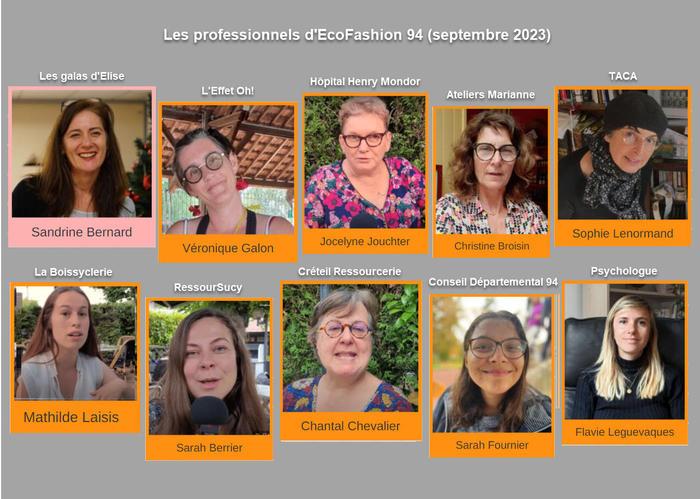
The work evolved through several phases, focusing on three main areas: repairing clothes, second-hand resale, and sustainable design. “Our aim,” explains Jean-Paul, “was first and foremost to create a network of professionals focused on the circular economy - not a network of clothing professionals who want to make their practices more circular.”
From Novelty to Norm: making circular the new black?
The initiative continues to have a real impact on the local community of designers, and consumers. The creation of the “Retoucherie EF94” service has provided a practical solution for clothing repair for locals living in the region, while the development of a service catalogue for recycling centres aims to promote repair and sustainability among local businesses and institutions.
The Val-de-Marne experiment has been a journey of innovation, collaboration, and resilience. It has shown that with the right vision and community support, significant strides can be made towards a sustainable future. As the EcoFashion 94 continues to evolve, it serves as a model for other communities looking to make a difference in the world of fashion.
Related Green Deal Priorities
Related localities
Related events
Related Resources


CONTACT
For further details please contact co-leads Professor Chris Foulds (chris.foulds@aru.ac.uk) and Professor Rosie Robison (rosie.robison@aru.ac.uk).

This project has received funding from the European Union’s Horizon 2020 research and innovation program under grant agreement No 101036640. The sole responsibility for the content of this website lies with the SHARED GREEN DEAL HAS project and does not necessarily reflect the opinion of the European Union.
